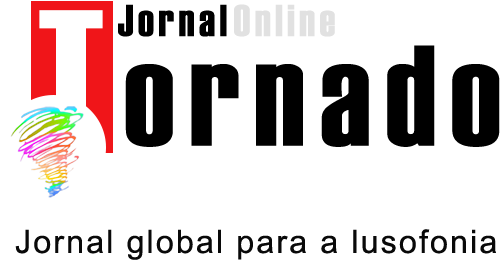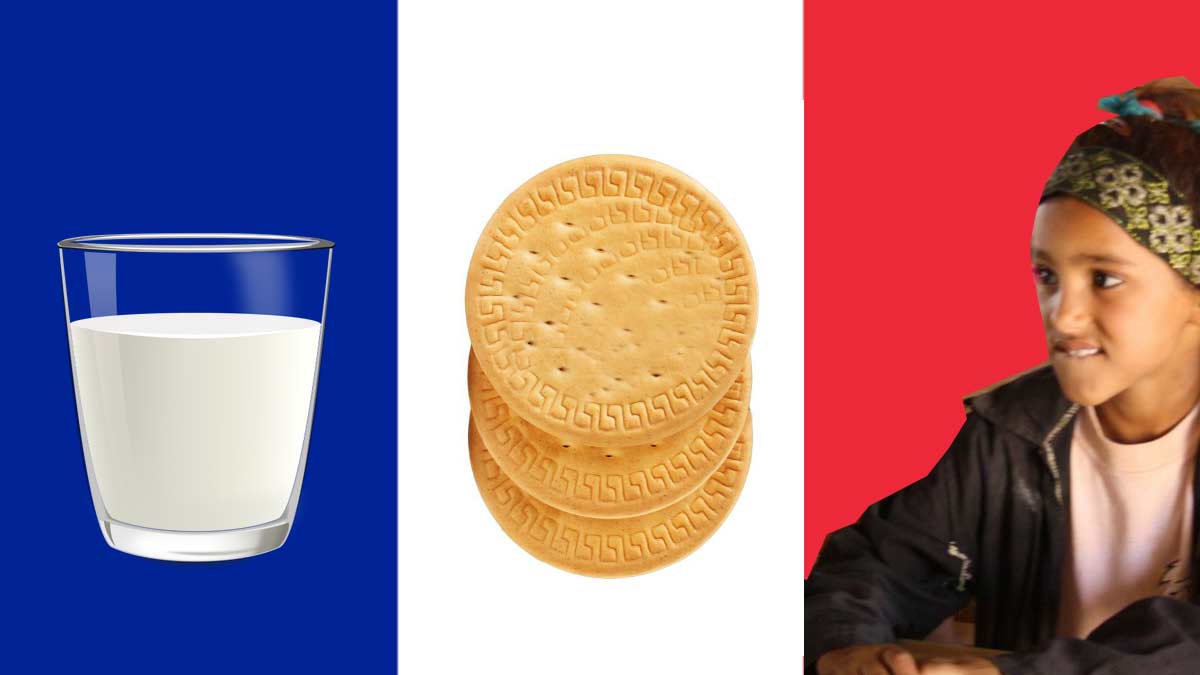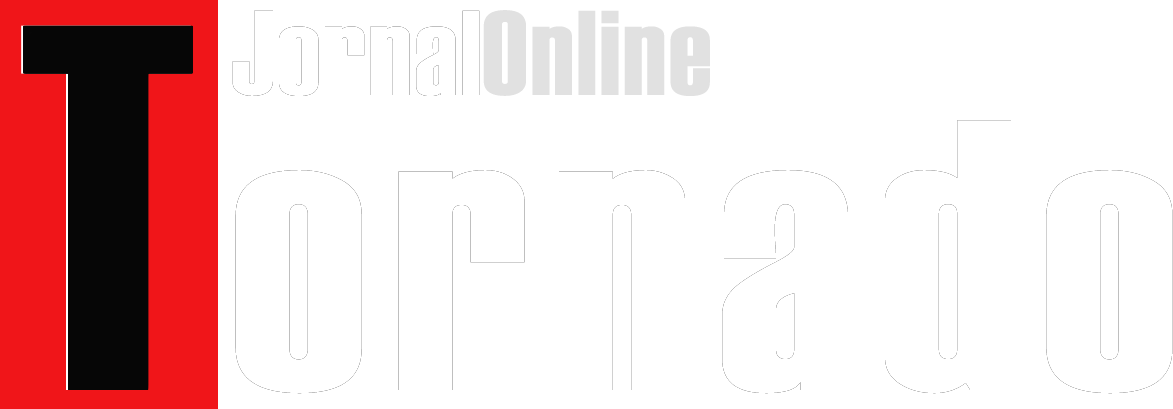This week the United Nations World Food Program (WFP) received an initial contribution of € 400,000 ($ 452,000) from the government of France (EU) to support Saharawi refugee children in camps in Algeria.
The French contribution will support WFP’s school food program, for about 40,000 children in schools and day care centers. This will allow each child to receive a mid-morning snack (nutritious cookies and milk) as soon as schools open again.
According to statements by Imed Khanfir, WFP representative and the director in Algeria, this help:
.. will be fundamental for the future of these children … WFP is very grateful to the people and government of France for their support to our school food program. .. “.
France will then be responsible for giving 40,000 children a packet of milk and cookies five times a week. Should we be thrilled? No, we should not.
France is largely responsible for the fact that these children, their parents and grandparents live in refugee camps and are dependent on food aid.
The 400,000 Euros divided by 40,000 children equals 10 Euros per child which represents a in a year of basic education with a minimum duration of 200 days, 0.05 Euros a day. Five cents a day is not enough to buy milk and cookies anywhere in the world. According to PAM the cost per child snack is 0.25Euros. Based on this data, France’s charitable contribution amounts to 40 snacks per child.
40 snacks on a scale where on the other side are 45 years of occupation and survival in refugee camps, 29 years of obstruction by France in the Security Council and 16 years of war where France supported the Moroccan occupier logistically.
If we put on this scale the 400,000 Euros of snacks and the price of just one of the multiple French planes that were used during the war to bomb Saharawi, and whose cost was around 8 million Euros[1], we see the extreme hypocrisy of this “charity”.
France’s support for Morocco
 During the war France participated actively from Nouakchott on several occasions, until Mauritania’s withdrawal from Saharawi territory, but supported Morocco with logistics and funding during the 16 years of armed conflict between the Polisario Front and Morocco until the ceasefire in 1991.
During the war France participated actively from Nouakchott on several occasions, until Mauritania’s withdrawal from Saharawi territory, but supported Morocco with logistics and funding during the 16 years of armed conflict between the Polisario Front and Morocco until the ceasefire in 1991.
From the first moment, Morocco had the strong support of the USA and France in the occupation of Western Sahara and in the genocide of the Saharawi people.
Even today, military support for the Moroccan occupation continues, as shown by “DISCLOSE” and its research partners (Lighthouse Reports, in cooperation with Disclose and with the support of Arte, Mediapart, Radio France and Bellingcat) who in an in depth investigation, analyzed videos, images satellite and reporting and found that aircraft and warships sold by French companies to Morocco have recently been implicated in Morocco’s occupation of Western Sahara.
France and the United Nations Security Council
But also, at diplomatic level France is Morocco’s staunch defender. At the United Nations Security Council, where France is a permanent member, its action has been to actively hinder any process that could lead to the holding of the referendum on the self-determination of Western Sahara that was the premise for the signing of the ceasefire in 1991, between the parts.
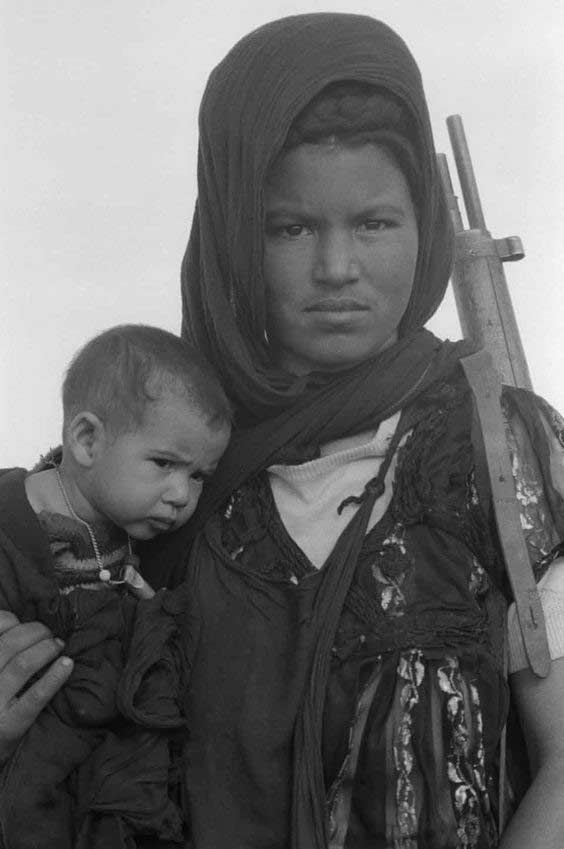 France threatens annually with the use of the Veto in the Security Council (SC), in order to prevent the inclusion of a human rights protection component in the mandate of the United Nations Mission for Western Sahara. Thus MINURSO (United Nations Mission for the Referendum in Western Sahara) not only does not fulfill its main mandate, but it is practically the only UN Peace Mission without a Human Rights component.
France threatens annually with the use of the Veto in the Security Council (SC), in order to prevent the inclusion of a human rights protection component in the mandate of the United Nations Mission for Western Sahara. Thus MINURSO (United Nations Mission for the Referendum in Western Sahara) not only does not fulfill its main mandate, but it is practically the only UN Peace Mission without a Human Rights component.
The veto was not used by any of the P5 (permanent members of the Security Council who are entitled to veto) in voting on the Western Sahara issue.
What has been France’s practice is a “technical veto” during private discussions on the draft resolutions of the SC. In this way, France was never forced to cast a negative vote when voting as in other cases and thus intends to maintain its image as a democratic country and humanitarian values. Furthermore, no other P5 has gone so far as to use a negative vote to fight France on this issue.
A clear example of French interference is the proposal (Plan Baker II) presented by former envoy of the Secretary-General of the Nations, James Baker, in 2003 that would be accepted as a viable solution to the conflict, but again France threatened the Veto and Morocco clearly rejected the plan.
The hypocrisy of France goes so far as to read on the French Permanent Mission Portal to the United Nations in New York:
France no longer uses its veto in situations of mass atrocities
During the United Nations’ 70th General Assembly, President François Hollande announced that France has committed never to use its veto in cases of mass atrocities:
“France would like for Security Council permanent members to no longer be able to resort to the veto in cases of mass atrocities.”
France wishes to regulate the use of the veto in the Security Council
As suggested by the President in 2013, regulating the use of the veto would consist in the five Security Council permanent members (China, United States, France, United Kingdom, Russia) voluntarily and collectively committing themselves not to resort to the veto when a situation of mass atrocity is observed, such as in the cases of genocidal crimes, crimes against humanity and large scale.
A very French-style statement, with all the correct terminology and apparently very concerned with human rights. We could almost forget that France is an active part and supports regimes that commit genocides and war crimes and that in the case of occupied Western Sahara, where the crimes mentioned above were committed and are committed on a daily basis, France is the godfather of Morocco.
France and the European Union
At European Union level, France once again shamelessly supports Morocco, the last scandal being that of French liberal MEP Patricia Lalonde, responsible for negotiating the European Parliament’s agreement to include Western Sahara in the agricultural and fisheries trade agreement between the EU and Morocco, the French Liberal MEP, Patricia Lalonde, who had to resign as rapporteur due to a conflict of interest due to her links with Rabat, after the denunciation of her improper conduct.
Former French MEP Patricia Lalonde of the Group of the Alliance of Democrats and Liberals for Europe and the Union des Démocrates et Indépendants (France) was a member of the Committee on International Trade and the Delegation to the Parliamentary Assembly of the Union for the Mediterranean and an alternate member of the Committee on Foreign Affairs, Mr Gilles Pargneaux of the Group of the Progressive Alliance of Socialists and Democrats in the European Parliament and the French Socialist Party is a member of the Delegation to the Parliamentary Assembly of the Union for the Mediterranean and an alternate member of the Committee on Foreign Affairs and the Delegation for Relations with the Maghreb Countries and the Arab Maghreb Union.
Both had key positions to defend the interests of Morocco with regard to the agreements and partnerships with this country and disrespect for the judgments issued by the Court of Justice of the European Union on non-inclusion of Western Sahara and its products and resources.
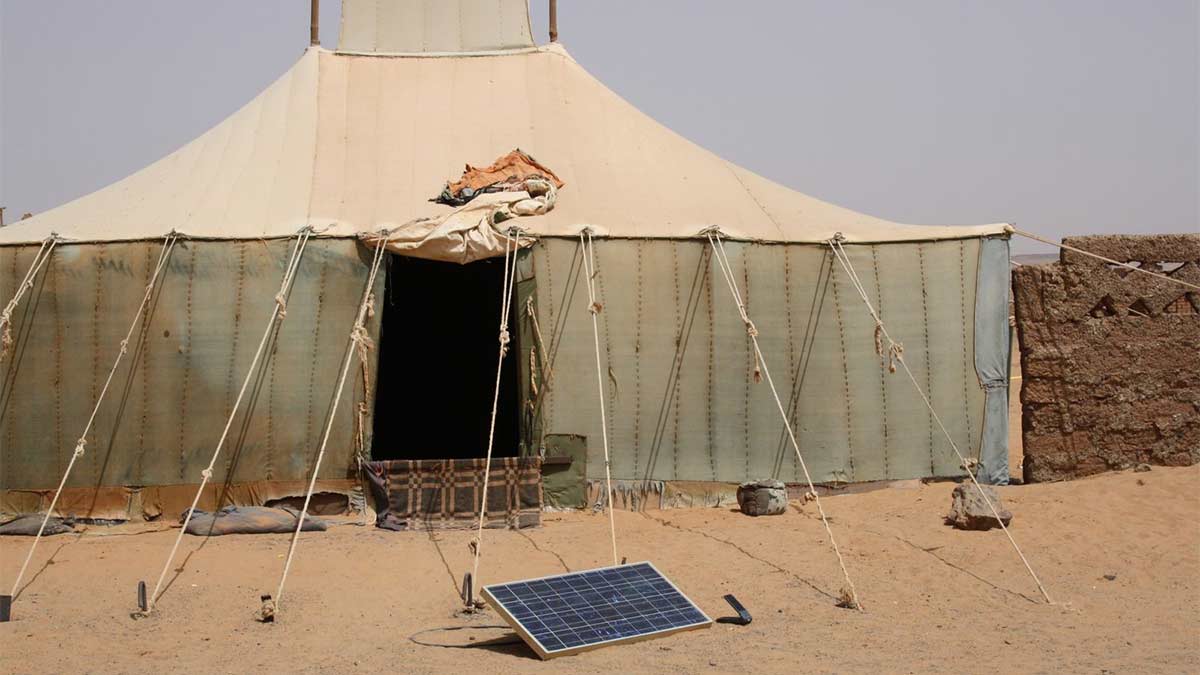
The case was denounced by Philippe Lamberts, Co-President of the Group of the Greens / ALE in the European Parliament, who wrote on 27th November 2018, a letter to Antonio Tajani, President of the European Parliament denouncing four MEP’s who were active in defense Moroccan interests, without having informed Parliament of their conflicts of interest and asked that the matter be referred to the Advisory Committee on the Code of Conduct.
Lalonde was on the EuroMedA Foundation Board of Directors, a foundation with direct ties to the Moroccan leadership, of which Mr Gilles Pargneaux was the president and co-founder.
Both actively and illegally defended Moroccan interests against the Saharawi people within the EU.
The European Union has also just announced a donation of 5.3 million Euros to WFP (L’Union européenne soutient l’aide alimentaire du PAM dans les camps de réfugiés en Algérie) for aid to Saharawi refugee camps.
French companies illegally exploit natural resources in Western Sahra
Recall, that the EU attributed to Morocco 450 million Euros, just to fight the COVID 19 pandemic, which represent 50 times more than the annual value attributed in the last two years for the survival of hundreds of thousands of Saharawi in the refugee camps.
In addition to this amount are the multimillion-dollar profits that EU members derive from the illegal exploitation of Western Sahara resources. The financial support to Morocco under the proximity agreement / partnership in the last two decades has been scandalous and without any application control as denounced by several MEPs.
France is involved in the illegal exploitation of Western Sahara resources, with the presence of several companies. Among which, at the level of agriculture, the company “AZURA”, in the oil sector “TOTAL”, several companies in the area of renewable energy, in the service area the large banking groups BNP Paribas, Société Générale, Crédit Agricole, the insurance company Axa Assurance, the airline Transavia and travel agency UCPA.
The three banks have subsidiaries – BMCI, Crédit du Maroc and Société Générale Maroc – as well as AXA Assurance with its wholly-owned Moroccan subsidiary AXA Assurance Maroc, all with a presence in the occupied territories.
In a video conference last April 25th organized by the Swedish NGO Solidarity Rising, Prof. Yahia H. Zoubir[2] recalled that in 2007, Morocco’s proposal for an autonomy plan instead of holding a referendum, was an idea of former French President Giscard d’Estaing.
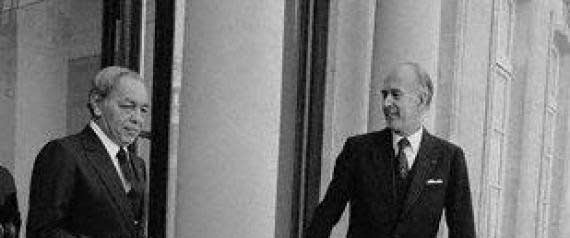
In fact, Morocco never had any intention of honoring the holding of the referendum agreed between the Polisario Front and Morocco under the auspices of the UN and the African Union because it knows that the result would not be favorable to it. Nor has Morocco ever explained what the autonomy plan would consist of, despite having been questioned several times during negotiations between the parties. When I speak of “Israelisation” of the conflict, I mean that Morocco, like Israel, wants to impose a de facto situation, using the introduction of settlers, and more settlers, construction of buildings and infrastructure, marginalization of the Saharawi population, and creation of conditions that make a solution difficult, in order to lead the international community to accept the occupation if not formally, informally. None of this would be possible without the support of France.”
And the role of the African Union
If we look at the African Union, Morocco’s the recent entry into this organization and France’s role on the continent, we continue to see close and mutually supportive ties between the two countries. Morocco entered the African Union with the support of most of the French-speaking African countries, former French colonies that remained under the yoke of the Franco CFA and thus in almost total economic-political dependence on France.
In December 2019 Macron announced the end of the CFA and a new currency called ECO due to the intense protests within the countries against French control and the strong criticism that has target France internationally and above all, Italy, related to the refugee crisis.
Morocco thus has the support of French-speaking African countries and other countries with destroyed economies in exchange for promises of economic support, but it has also become France’s facilitator within the AU.
These maneuvers have been evident over the past two years, and recently with the opening of illegal Consulates, from African countries with no citizens in place, within the occupied territories of Western Sahara have become made It even more evident.
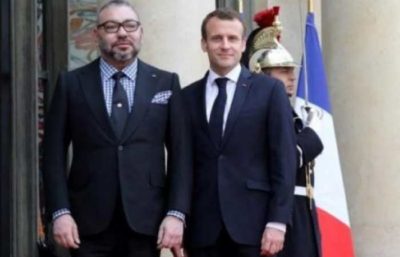 At the military level, Morocco / France interaction and support on the African continent is well known. In fact, Macron’s military policies in this area of the globe go hand in hand with Morocco, which is also a partner of NATO.
At the military level, Morocco / France interaction and support on the African continent is well known. In fact, Macron’s military policies in this area of the globe go hand in hand with Morocco, which is also a partner of NATO.
But why is France so attached to the Moroccan monarchy, a country in North Africa with no relevant natural resources, except those it steals in Western Sahara, and with increasing social problems and revolts?
In addition to the historical relationship and French nostalgia, and about 45,000 French nationals living in Morocco, – a very low number and even insignificant if compared with the data from 2016 (Distribution of the number of French expatriates across the world in 2016, by geographical area), where the majority of French expats live in the European Union. The second most popular geographic area for French people living abroad was North America, with more than 259,000 French citizens based there. In Portugal alone, 17,245 French nationals currently live according to Border Security Authorities data.
However, in France, the Moroccan community is already 18.4% of the total number of emigrants with 755,400 legal immigrants, it is estimated that the number is much higher.
Morocco the godson of France
They are, therefore, the economic factors, but above all the geopolitical ones that make Morocco the godson of France. An entrance to Africa, a continent increasingly economically linked to China and where France is in a phase of decline, and also as a bridge to some Arab countries.
Economically we can mention the fact that France is the largest direct investor with 70% of the investment in Morocco and is Morocco’s second economic partner, Spain being the first.
We can conclude that one of the main factors for Morocco to continue the occupation of Saharawi territory with impunity is the support of France that prefers to ignore international law and thus putting the game of political power over legality. This contradiction between law and political power, and external support is the impediment to resolving the conflict in Western Sahara. The occupier is shamelessly supported by some of the world’s major political actors, namely France and the USA, but also by Spain, which has played a shameful role in this process. With France and the USA, permanent members of the UN CS, and Spain in the group of “friends of the Western Sahara of the UN”, any solution that respects international law seems to have been ruled out at the outset.
As Zoubir says, “they present victims as offenders”, however, the Saharawi people do not give up on their struggle for independence, which is currently taking place at the diplomatic level, but which is reaching a breaking point with this path.
The balance of “charity” is evidence of international hypocrisy.
[1] 1976. During the months of January and February, the Moroccan and Mauritanian military invasion led to the massive flight of the Saharawi civilian population, established in refugee camps in Tindouf, Algeria. Moroccan aviation bombed the Saharawi fields in Um-Draiga, Tifariti, Amgala, El Maltani, Guelta-Zemur with Napalm and White Phosphorus and in 1977 the French military’s Jaguar planes made a foray into Western Sahara via Mauritania attacking the Saharawis in the operation “Lamantine”.
[2] Yahia H. Zoubir is a Senior Professor of International Studies and Director of Research in Geopolitics at KEDGE Business School, France, and currently a Guest Researcher at Brookings Doha Center. Before joining KEDGE in 2005, he taught at several universities in the United States and was a guest professor at several universities in China, Europe, the United States, India, Indonesia, South Korea and the Middle East and North Africa.

Receba a nossa newsletter
Contorne o cinzentismo dominante subscrevendo a Newsletter do Jornal Tornado. Oferecemos-lhe ângulos de visão e análise que não encontrará disponíveis na imprensa mainstream.

